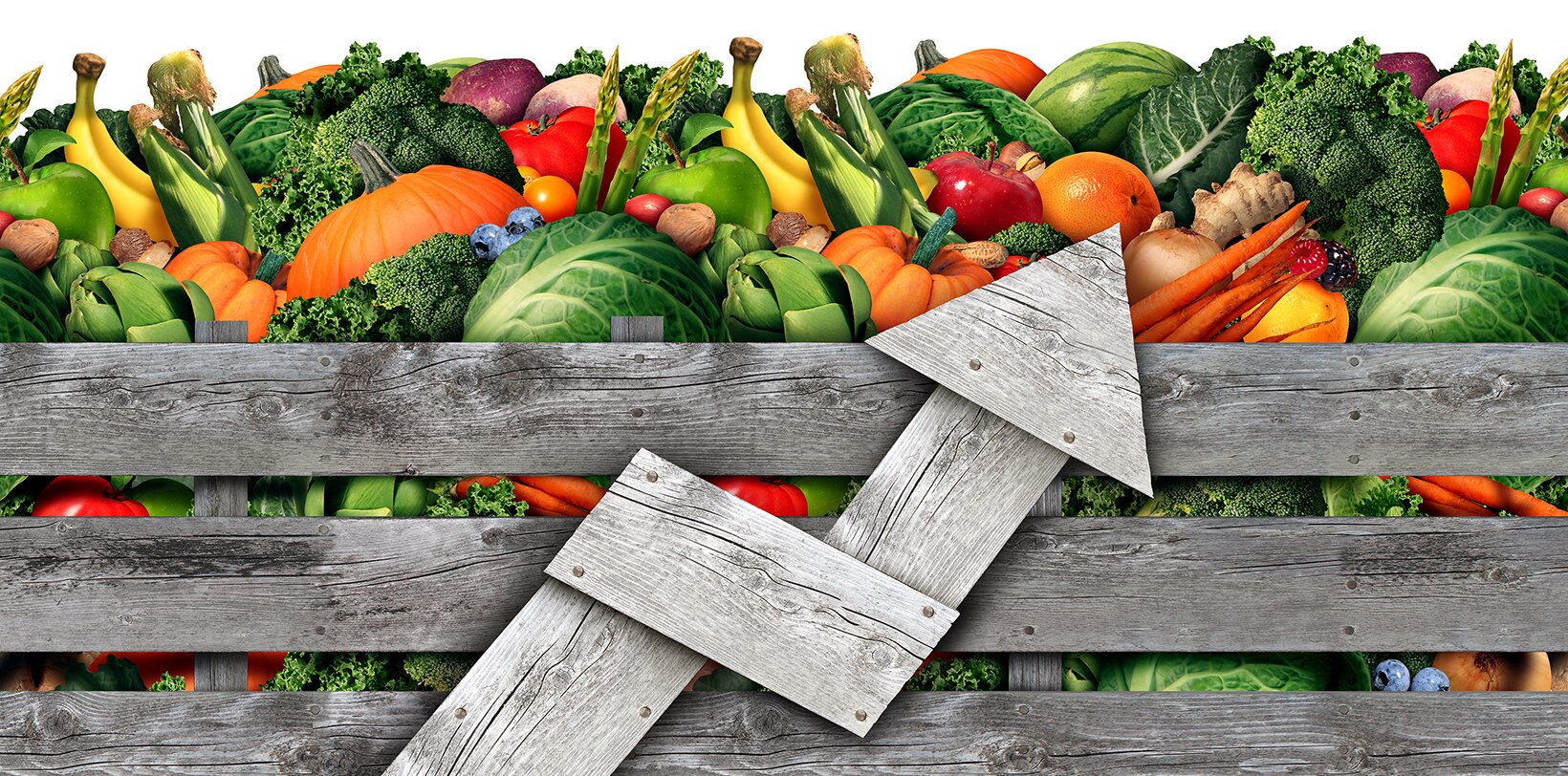Food and drink supply predictions for summer 2023
Food supply is still far from secure, and while producers play catch-up, many are having to charge higher prices just to survive. Lynx Purchasing predicts how the market will look into the summer
The problems caused by fresh produce shortages and price increases are likely to last until well into the spring, warns hospitality buying specialist Lynx Purchasing.
In the longer term, Lynx believes the trade-off for a more secure supply chain may have to include operators paying UK farmers and food producers a sustainable price that not only covers the true cost of production, but also enables them to continue to invest in their business.
The warning comes as Lynx Purchasing publishes the spring/summer 2023 edition of its regular Market Forecast. Rachel Dobson, Lynx Purchasing managing director, said: “The immediate issues with salad produce are now well understood, in terms of the impact of bad weather in southern Europe and the unwillingness of UK growers to pay to heat glasshouses without support on energy costs.
“The current availability issue is hopefully a relatively short-term challenge, but new crops can’t be grown overnight, so it is likely to be a significant issue for the next few months. Our advice is that hospitality operators should plan for both potential shortages of supplies of the produce affected, as well for further cost increases.
“Discuss options and availability with suppliers, and be prepared for a wider range of specification in terms of size and colour when buying fresh produce. It’s also worth looking at accompaniments and garnishes across the menu and deciding which genuinely add value for customers.
“However, repeated shocks have shown us how fragile the supply chain is, whether it’s the sunflower oil shortage after the Ukraine invasion or the impact of avian flu on poultry and egg supply.
“As bodies such as the NFU have said, we need to become less reliant on food imports and focus more on home-grown, seasonal produce. That should include a sensible debate on how farmers and food producers can be paid at a sustainable price. We know that’s a challenging proposition for hospitality operators who have seen 20%-plus inflation on their food and drink prices over the past couple of years, but our sector needs to play its part in addressing the UK’s food security shortfall.
“The race to the bottom in terms of food prices has been driven by the demands of retailers, but when meat, dairy and fresh produce suppliers are exiting the market because their business has become unsustainable, hospitality also suffers.”
The Lynx Purchasing Market Forecast combines official inflation data with exclusive insight from the range of specialist hospitality suppliers Lynx works with, providing detailed information on pricing trends over the crucial coming months.
Beef and lamb
Current prices are well above average, as higher energy and feed costs have combined with the labour shortage to reduce UK production of both beef and lamb. With seasonal increases in demand for lamb around Easter and for beef as the barbecue season starts, demand for the most popular cuts will be high.
Pork
Higher production costs have made it more of a challenge for UK pork producers to make a profit, prompting a number to cut back or exit the market at the start of the year. This has seen upward price pressure on bacon initially, and is likely to make prime pork cuts more expensive as demand increases in the spring.
“Our sector needs to play its part in addressing the UK’s food security shortfall”
Salmon
An expected price increase in both fresh and smoked salmon has proven to be much sharper than suppliers were expecting, due to the impact of factors such as fish quality, high demand and the impact of bad weather on production. Consider alternative species as menu options wherever possible.
Potatoes
The cold weather has also had an impact on potatoes, both in the UK and in Europe, where many processed and frozen potato products are produced. This is likely to affect availability and price of new potatoes this spring, as well as frozen chips and other potato products as current supplies run out.
Vegetables
The ongoing labour shortage meant that many farmers were unable to plant the full crop of root vegetables they would have liked. Combined with the effect of the very cold weather at the start of the year, this is likely to see shortages and higher prices for both fresh and frozen veg.
Eggs
Egg supply has been significantly affected by avian flu, with restrictions on producers affecting both supplies and price. Measures to control the outbreak are likely to have a continued impact on availability.
Dairy
After a period of very high inflation, some dairy prices have started to level off, particularly butter and cream, which will help with the price of many frozen and premade products. However, demand for cheese is still strong.
Dobson adds: “One more thing we’re flagging up in this edition of the Market Forecast is the rising price of branded products. The media has reported that some of the best-known food brands have put their prices up at the top end of the inflation rate as they seek to restore margins. This affects foodservice supplies as well as retail, and hospitality operators will need to look carefully at where branded products genuinely add value.
“We’re suggesting looking at generic or own-brand frozen products, sauces and condiments instead of brand leaders wherever possible, and a number of customers have been able to achieve significant savings by doing so. One good way to select products is to run a blind taste test with staff to see what will work for your business without affecting menu quality.
“Overall, by working closely with suppliers, focusing on seasonality and availability, and applying basic buying discipline, operators can manage food and drink costs more effectively, and avoid unexpected bills. Best practice includes planning menus well in advance, and consolidating orders to meet free delivery and minimum value thresholds.”
Lynx Purchasing
Lynx Purchasing works with more than 2,200 accounts in the hospitality and catering sector, on a no-membership and no-contract basis.
As purchasing professionals, Lynx works with leading suppliers in the hospitality and catering industry. These include specialist fresh food suppliers, wines & spirits, catering equipment providers, utilities, and specialist service providers such as telecom, business rates consultancy and waste management.
A free copy of the spring/summer 2023 Market Forecast can be downloaded here
Keep up to date with Lynx Purchasing through LinkedIn.
For more information call 01325 710143 or email hello@lynxpurchasing.co.uk















